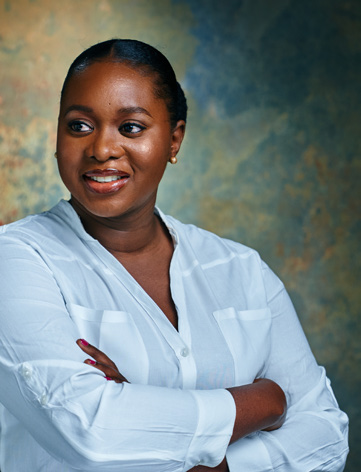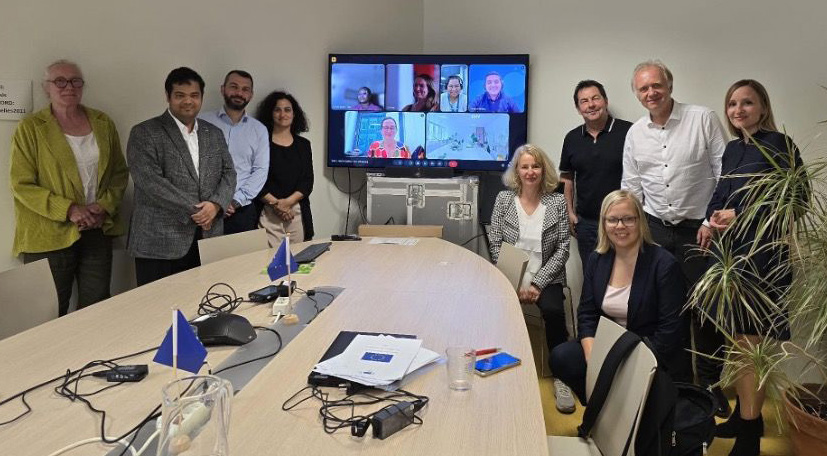News from the MCAA - MSCA-GLOPOL launches to open new doors for researchers worldwide - September 2025
Newsletters
The Marie Skłodowska-Curie Actions (MSCA) have long been a gateway for researchers to gain new skills, expand their networks, and collaborate across borders. Now, a new project under Horizon Europe MSCA Global Cooperation: Policy Enhancement and Strategic Promotion (MSCA-GLOPOL) has officially launched to make those opportunities more visible, accessible, and impactful for researchers worldwide.
MSCA-GLOPOL is a three-year initiative designed to strengthen international research collaboration, promote inclusive participation in the MSCA calls, and align efforts with key science diplomacy and innovation policies across 26 global regions. Led by PRACSIS in collaboration with the Marie Curie Alumni Association (MCAA), the project adopts a structured and inclusive approach – bringing together stakeholder engagement, targeted promotion, capacity-building, and policy alignment to strengthen global research talent and institutions’ access to MSCA opportunities.
The project kicked off with a hybrid launch meeting in Brussels on 26 June 2025, where consortium members, European Commission representatives, and regional stakeholders aligned on priorities and next steps. Soon after, the MSCA-GLOPOL team also met with MCAA Chapter Chairs online to explore how the Chapters can actively support regional outreach, training, and community engagement.

N’zallah Z. Haro
Bionote
N’zallah Z. Haro is a communications specialist and Marie Curie alumna with a background in health. She serves as a Communications Officer for the GLOPOL project under the MCAA, supporting efforts to strengthen global research collaboration. With extensive experience leading communications across Sub-Saharan Africa, Latin America, Europe, and Asia, she brings a global perspective to her work. Her research and advocacy interests focus on chronic illnesses, particularly sickle cell disease, where she aims to bridge research, policy, and innovation to improve patient outcomes and amplify patient voices in shaping health solutions.

MSCA-GLOPOL Launch meeting, 26 June 2025, participants from the left: Isabelle Demolin (Communication Adviser, PRACSIS), Mostafa Moonir Shawrav (MCAA Executive Director), Alexandros Iakovidis (Senior Project Manager, PRACSIS), Cristina Gomez (Project Coordinator, PRACSIS), N ́zallah Zamani Haro (MSCA-GLOPOL Communication Officer, MCAA), Armela Dino (MSCA GLOPOL Project Officer, MCAA), Kira Keini (MCAA Communication Manager), Jenny Lind Elmaco (Policy Adviser, PRACSIS), Nishant Shandilya (RLO Representative), Desislava Kolarova (Policy Officer, Research Executive Agency (REA), European Commission), Thierry Devars (Policy Officer, MSCA Unit, European Commission), Tereza Szybisty (MCAA Policy Officer), Bernhard Von Mach (CEO, PRACSIS), Elida Jacobsen (PRACSIS).
Why it matters to MSCA fellows and alumni
For current MSCA fellows, alumni, and prospective applicants, MSCA-GLOPOL isn’t just another EU project. It directly touches on how researchers connect with funding opportunities, access training, and participate in global research networks. More specifically, the benefits are:
• For applicants: Access to more targeted information, guidance, and support in their regions to lower barriers to applying for the MSCA.
• For fellows and alumni: Possibilities to share experiences, engage in events, and connect with peers across continents.
• For institutions and policy actors: Stronger dialogue with the MSCA to ensure that research priorities are aligned with local and regional needs.
“Through MSCA-GLOPOL, we are actively working to break down barriers to global research cooperation. This initiative is all about ensuring that researchers, no matter where they are, have the visibility and support they need to access MSCA opportunities and contribute to a stronger, more interconnected global research community,” explains Mostafa Moonir Shawrav, Executive Director at the MCAA.
Where the project works
MSCA-GLOPOL is here for researchers at all stages and has a truly global reach. It focuses on countries with EU Science and Technology Agreements, including Algeria, Argentina, Australia, Brazil, Canada, Chile, China, Egypt, India, Japan, Jordan, Korea, Mexico, Morocco, New Zealand, South Africa, Switzerland, Tunisia, Ukraine, and the United States; and on regional dialogues with the African Union, Association of Southeast Asian Nations, Latin America and the Caribbean, Mediterranean partner countries, the Eastern Partnership, and the Western Balkans.
This geographic spread reflects the EU’s commitment to deepening science diplomacy and international collaboration.
What's happening in practice?
MSCA-GLOPOL is built on practical, concrete actions designed to benefit researchers directly, including:
• Events: The project will participate in regional flagship events, organise thematic workshops, and host global online training sessions. These are opportunities to learn more about the MSCA, sharpen proposals, and connect with peers and institutions.
• Tailored resources: From multilingual guides and toolkits to inspiring success stories and alumni case studies, new materials will be created to showcase MSCA opportunities and provide first-point- of-contact information in regions where awareness about the programme is still low.
• Policy insights with real impact: Based on the needs and experiences of the research community, the project will track participation in MSCA calls across the 26 regions, publish country updates, and feed evidence-based recommendations into EU policy dialogues.
• Involvement of the MCAA community: The MCAA Chapters and members will play an active role in the project, helping to anchor promotion efforts locally, share best practices, and connect the project with researchers.
How can you engage
The project is designed to be open and participatory. MSCA fellows, alumni, and prospective applicants can engage with MSCA-GLOPOL by joining events such as training sessions, flagship gatherings, and thematic workshops announced through the MCAA and project channels. Alumni and fellows are also encouraged to share their stories through case studies, interviews, and testimonials that can inspire future applicants.
To stay updated, keep an eye on the MSCA- GLOPOL website and watch out for the upcoming Flashnote newsletter, which will share news, opportunities, and ways to get involved.
If you’d like to connect with the MSCA- GLOPOL team whether to collaborate on events, contribute to promotion, or share ideas, use the MCAA contact form (Subject: MSCA-GLOPOL).
As the project gains momentum, expect more opportunities to participate, more tailored information in your region, and more ways to connect your research to global networks.
MSCA-GLOPOL is ultimately about making sure that wherever you are in the world, you have a clearer pathway to the MSCA. For applicants this means access. For fellows and alumni, it means visibility. For the global research community, it means stronger, more inclusive collaboration.
N’zallah Zamani Haro
LinkedIn
MSCA-GLOPOL
glopol.mcaa-com.officer@mariecuriealumni.eu